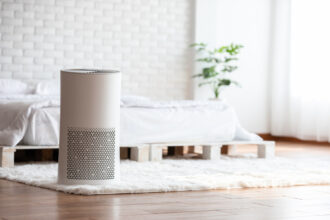The Ultimate Guide To Buying Hearing Aids

A wealth of information and disinformation is available about hearing aids, and it can get overwhelming even for physicians. As with any huge purchase, picking a hearing aid can be hard and confusing when the right information isn’t available. One may also not know what the correct questions to ask are. So, when shopping for hearing aids, a copy of this checklist will be helpful. It can make one feel assured about their decision to better their life through improved hearing.
Where Do I Take a Hearing Test?
For an initial hearing evaluation, a visit to a primary care doctor first would be wise. This could be followed by a diagnostic audiogram (hearing evaluation) through a referral to a specialist. Note that audiologists have a seven-year university training (master’s or doctorate level) at the minimum. Hearing instrument specialists can conduct hearing tests but do not possess the medical training to exclude medical issues. They won’t be able to rule out ailments that lead to hearing loss like Usher Syndrome, Ménière’s disease, ototoxic drugs, sudden-onset, genetics, etc.
Where Do I Purchase My Hearing Aids?
Usually, after an evaluation by an audiologist or hearing instrument specialist has been done, one might be able to buy their hearing aids from them. Keep in mind that the professional is trained in not only selecting the right hearing aid device but also ensuing its fitting and maintenance.
Which Hearing Aid Style Do I Pick?
The manual dexterity and vision ability, severity of hearing loss, comfort, and/or cosmetic appeal determine the style of a hearing aid. There won’t be much difference in cost irrespective of whether people buy one that is almost invisible in the ear canal or one that is a larger, behind-the-ear hearing aid. Remember that there are three popular categories of hearing aids: Behind-the-ear (BTE), receiver-in-canal (RIC), also known as receiver-in-the-ear (RITE); In-the-ear (ITE), in-the-canal (ITC); and completely-in-the-canal (CIC); invisible-in-the-canal (IIC). Inquire about each device’s pros and cons before making a choice.
Which Fidelity Level Is Right for Me?
The hearing aid’s fidelity (technology) level of the computer chip determines its cost. A majority of manufacturers offer three levels of fidelity in their latest hearing aids as well as in their economic models. Hearing aids with a high level of technology can separate noise from speech better and quicker. This implies the speech and sound data transferred to the brain is more precise.


